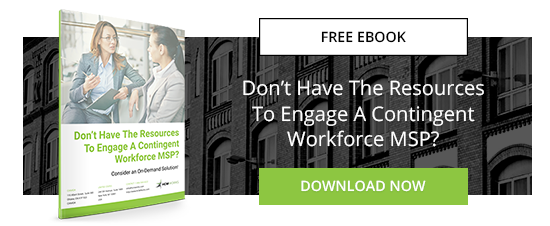All companies need vendors in order to do business. Though vendors are essential, managing and monitoring them is a complex process that involves many moving parts.
In order to do so efficiently, you must be strategic in your management, which means using the appropriate tools and technologies to get the job done. Automation is necessary in vendor management. If you try to track your supplies manually, you’ll lack visibility into performance and deliverables, waste time, and increase labour and administrative costs. By using vendor management software, your company can gain valuable insights that can increase efficiency, mitigate risk, and maximize vendor performance.
1. Increase Efficiency with a Centralized Information Base
With a vendor management solution, you’ll have access to a centralized repository for all of your vendor information. Financials, security policies, contracts, insurance certificates and other key data you need to understand the vendors you work with can be collected, stored, and used in a meaningful way, all in one place. This simplifies the process of managing multiple relationships in order to increase efficiencies, reduce wasted time, and cut costs associated with vendor management.
Performance data, reports, and information will always be readily available and can be used in order to make informed decisions about vendors. Additionally, the software will allow you to reduce the amount of employees devoted to the vendor management process, which will generate additional cost savings. You’ll be able to do more with fewer resources.
2. Identify and Manage Vendor Risk
With a vendor management solution, you’ll be able to perform your due diligence and rate your risk based on the data you have from your vendors versus the data you need. For example, you’ll know immediately if a certain vendor doesn’t have an insurance certificate on file. This can help you mitigate your risks by handling vendors with different risk ratings appropriately.
Furthermore, when performance is tracked and measured, your company can know about problems right away and can take action to correct them before they harm your bottom line. A sudden drop in quality, for example, can mean that the vendor is cutting corners, and late shipments could indicate raw material problems or financial issues. With management software, you have access to trends and advanced signals that can identify risks before they adversely affect your business operations.
Financial metrics can also allow you to track the financial health of your suppliers so you don’t have to risk losing a lot of money or having a disruption of supply. You can capture vital financial data, such as a supplier’s profitability, growth, and revenues, or changes such as divestments, acquisitions, or mergers, in order to predict future risks.
3. Increase Vendor Performance with Metrics
Without proper management, it can be difficult for your company to determine whether a supplier is meeting its quality standards. You don’t have the metrics in place to measure and track performance. But with a vendor management solution, you’ll always get the quality you deserve because you’ll be able to perform objective assessments of deliverables. You’ll be able to help develop suppliers with specific and actionable feedback that encourage them to increase their quality control and standards and achieve the high performance goals that you need.
Additionally you’ll be able to ensure contract compliance when you have proper management software. Depending on the terms of a contract and the vendor’s category, you can use the program’s metrics to measure contract compliance. You’ll be able to quickly see whether your vendors are keeping up with their end of the deal. This will allow you to enhance received output for both current and future projects.



